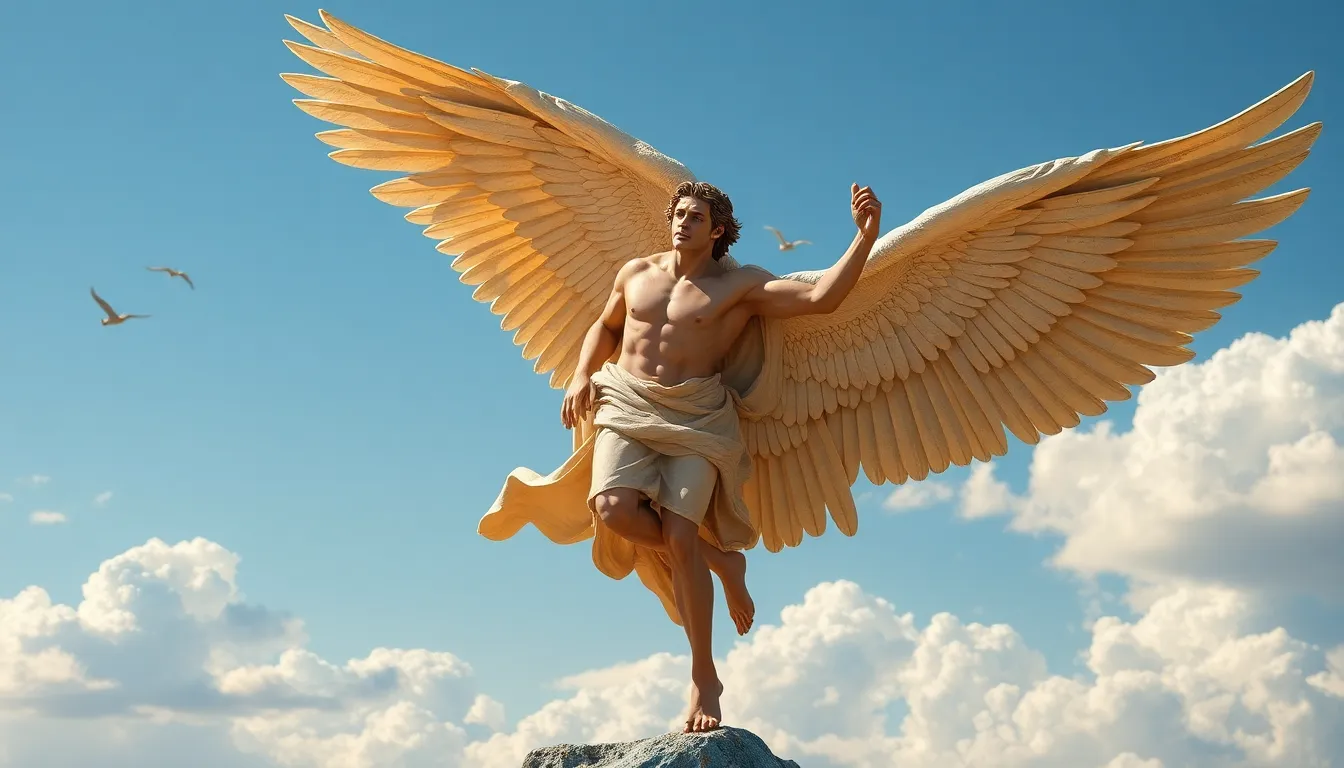Daedalus and Icarus: A Father-Son Duo Bound by Fate
I. Introduction
The myth of Daedalus and Icarus is one of the most poignant tales in Greek mythology, encapsulating the complexities of ambition, creativity, and tragic fate. At the heart of this myth lies the relationship between a father and son, where Daedalus, the master craftsman, and Icarus, his adventurous son, embark on a perilous journey that ultimately leads to heartbreak. This narrative serves as a powerful reminder of the risks associated with unchecked ambition and the delicate balance between creativity and responsibility.
This article explores the themes of ambition, creativity, and tragedy in the story of Daedalus and Icarus, highlighting their enduring relevance in both ancient and contemporary contexts.
II. The Mythological Background
The tale of Daedalus and Icarus begins with the origins of Daedalus, a figure renowned for his exceptional skills as a craftsman and inventor. His creations, including the Labyrinth that housed the Minotaur, reflect a profound understanding of art and science. Daedalus was not only a genius but also a man burdened by his own hubris, which would later play a significant role in the fate of his son.
Icarus, on the other hand, is portrayed as the innocent and adventurous son, filled with dreams of exploration and freedom. Together, they seek to escape from Crete, where they have been imprisoned by King Minos. The events leading to their fateful escape are marked by cleverness, desperation, and a desire for freedom.
III. Daedalus: The Ingenious Father
Daedalus is celebrated as a master craftsman whose skills are unparalleled. His inventions, from intricate sculptures to mechanical devices, showcase his genius. However, his character is complex; he embodies both the brilliance of human creativity and the pitfalls of excessive pride.
As a father, Daedalus takes on the role of protector and guide for Icarus. He meticulously crafts wings made of feathers and wax, intending to facilitate their escape from Crete. Yet, within this father-son dynamic lies a tension between guidance and the inevitable quest for independence that defines youth.
IV. Icarus: The Symbol of Youth and Recklessness
Icarus’s character is marked by a youthful exuberance and a yearning for freedom that is at once admirable and reckless. His desire to soar above the constraints of his captivity reflects the universal longing for transcendence and adventure. However, this ambition comes with a lack of foresight and an underestimation of consequences.
The contrast between Icarus and his father is stark. While Daedalus embodies caution and wisdom, Icarus represents the impulsiveness of youth. This dichotomy highlights the challenges faced by parents in guiding their children, as well as the inherent risks of youthful ambition.
V. The Flight: A Journey of Ambition and Warning
The crafting of the wings is a pivotal moment in the myth, symbolizing the intersection of human ingenuity and the desire for freedom. Daedalus’s escape plan is both ingenious and fraught with peril, underscoring the duality of creation and destruction. Before their flight, Daedalus imparts crucial advice to Icarus, warning him to:
- Fly at a moderate height.
- Avoid flying too close to the sun, as the heat would melt the wax.
- Steer clear of the sea, as the moisture could weigh down the wings.
Initially, their flight is a success, as they break free from the confines of Crete and experience the exhilaration of soaring through the sky. This moment of triumph is, however, overshadowed by the looming tragedy that follows.
VI. The Fall: A Tragic Consequence of Icarus’s Choices
The moment of Icarus’s hubris occurs when he, overwhelmed by his newfound ability to fly, disregards his father’s warnings. In a fit of exhilaration, he ascends higher, closer to the sun. The consequences are dire: the wax in his wings melts, and he plummets into the sea.
The symbolism of Icarus’s fall is profound, representing the tragic consequences of unchecked ambition. His disregard for moderation serves as a cautionary tale about the dangers of overreaching. Daedalus’s reaction to Icarus’s fate is one of devastation and loss, encapsulating the heart-wrenching implications of their journey.
VII. Themes and Lessons from the Myth
The myth of Daedalus and Icarus presents several timeless themes that resonate through the ages:
- The duality of creativity and destruction: While creativity can lead to innovation and freedom, it can also result in catastrophic consequences if not tempered with wisdom.
- The relationship between freedom and responsibility: The desire for freedom is inherent in the human experience, yet it comes with responsibilities that must not be ignored.
- The timeless relevance of the myth: The story of Daedalus and Icarus continues to resonate in contemporary society, serving as a reminder of the balance between ambition and caution.
VIII. Conclusion
The father-son bond between Daedalus and Icarus is at the core of this myth, illustrating the tragic implications of their journey. Daedalus, as a father, embodies both the protective instincts and the burdens of guiding a son who seeks independence. Icarus, in his quest for freedom, becomes a symbol of youthful recklessness and the consequences of hubris.
Ultimately, the enduring legacy of Daedalus and Icarus serves as a cautionary tale for modern audiences, reminding us of the delicate balance between ambition and responsibility. Their story continues to inspire reflections on the nature of creativity and the consequences of our choices, making it a timeless narrative that transcends generations.




